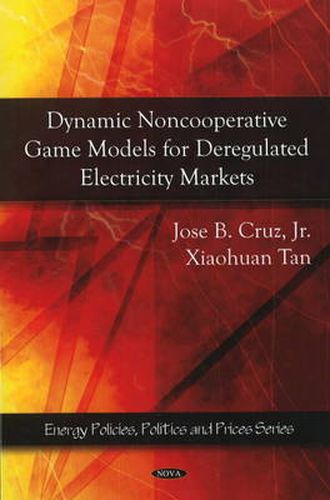Readings Newsletter
Become a Readings Member to make your shopping experience even easier.
Sign in or sign up for free!
You’re not far away from qualifying for FREE standard shipping within Australia
You’ve qualified for FREE standard shipping within Australia
The cart is loading…






The deregulated electricity markets are expected to be perfectly competitive, yet they remain oligopolistic in which the market participants are able to exercise market power to game the markets. Game theory, by its nature, is considered as the appropriate framework to study the interactive behaviours of decision makers with conflict of interest. Substantial research has been devoted to study gaming behaviour in the deregulated electricity market using game theory. However, most of the modelling of the markets is static and this type of model leads to non-optimal results for long-term strategic planning due to the inherent dynamic nature of the market. This book formulates and describes the gaming behaviour in the deregulated electricity market from a dynamic point of view, considering long-term interests in a changing environment. It starts with a review of the current situation of deregulation and a brief review of near-term energy issues. The book includes the latest results on bidding dynamic strategies for such markets.
$9.00 standard shipping within Australia
FREE standard shipping within Australia for orders over $100.00
Express & International shipping calculated at checkout
The deregulated electricity markets are expected to be perfectly competitive, yet they remain oligopolistic in which the market participants are able to exercise market power to game the markets. Game theory, by its nature, is considered as the appropriate framework to study the interactive behaviours of decision makers with conflict of interest. Substantial research has been devoted to study gaming behaviour in the deregulated electricity market using game theory. However, most of the modelling of the markets is static and this type of model leads to non-optimal results for long-term strategic planning due to the inherent dynamic nature of the market. This book formulates and describes the gaming behaviour in the deregulated electricity market from a dynamic point of view, considering long-term interests in a changing environment. It starts with a review of the current situation of deregulation and a brief review of near-term energy issues. The book includes the latest results on bidding dynamic strategies for such markets.